Getting a Jumbo Home Loan with a Chapter 13 Bankruptcy: What You Need to Know
When it comes to purchasing a home, most buyers aspire to secure their dream property — a home large enough to accommodate their needs and preferences. This often leads many homebuyers to pursue a jumbo loan, which allows them to finance properties above the conforming loan limits set by government agencies like Fannie Mae and Freddie Mac.
However, for borrowers with a Chapter 13 bankruptcy in their past, securing any type of loan, let alone a jumbo loan, may seem like a daunting task. Chapter 13 bankruptcies are a form of debt restructuring where the debtor agrees to a repayment plan over a period of three to five years. Many prospective homeowners with a Chapter 13 bankruptcy on their record wonder if they are eligible for a jumbo home loan, given the challenges posed by such a bankruptcy.
This article will explore the possibility of getting a jumbo home loan with a Chapter 13 bankruptcy, discussing key factors involved, the eligibility criteria, and providing tips for successfully navigating this process.
Chapter 1: What Is a Jumbo Loan?
Before delving into the specifics of qualifying for a jumbo loan after a Chapter 13 bankruptcy, it’s important to understand what a jumbo loan is.
A jumbo loan is a type of mortgage that exceeds the conforming loan limits established by the Federal Housing Finance Agency (FHFA). These limits vary by county and are set annually, but as of 2023, the limit for a single-family home in most areas is $726,200. In high-cost areas like California or New York, the limit can be higher, often exceeding $1 million.
Jumbo loans are typically used to purchase high-value properties that fall outside of the standard limits for conventional mortgages. Because these loans are not backed by Fannie Mae or Freddie Mac, they carry a higher level of risk for lenders. As a result, jumbo loans often come with stricter qualification requirements, including a higher credit score, larger down payments, and additional documentation to prove the borrower’s financial stability.
Chapter 2: Understanding Chapter 13 Bankruptcy
Chapter 13 bankruptcy is a legal process designed to help individuals reorganize their debts and repay creditors over time. Unlike Chapter 7 bankruptcy, which involves the liquidation of assets, Chapter 13 allows debtors to keep their property and repay a portion of their debt over a three-to-five-year period.
To qualify for a Chapter 13 bankruptcy, the individual must have a regular income and the ability to make monthly payments toward the repayment plan. The amount paid to creditors is based on the debtor’s income, expenses, and the value of their assets. Once the repayment plan is complete, any remaining unsecured debts may be discharged.
For many individuals, filing for Chapter 13 bankruptcy provides a fresh start. However, it can also have long-lasting effects on credit scores and financial stability, which can complicate the process of applying for loans — including jumbo loans.
Chapter 3: Can You Get a Jumbo Loan After Chapter 13 Bankruptcy?
The short answer is: yes, it is possible to get a jumbo loan after a Chapter 13 bankruptcy, but there are specific conditions that must be met. Lenders typically have stricter criteria when approving borrowers with a bankruptcy on their record, and jumbo loans are no exception.
1. Waiting Period After Bankruptcy Discharge
The waiting period after a Chapter 13 bankruptcy discharge is one of the most significant factors in determining whether a borrower will qualify for a jumbo loan. In general, most lenders require a waiting period of at least two years after the discharge of Chapter 13 bankruptcy before you can apply for a conventional or jumbo loan. However, some lenders may be more flexible and allow a shorter waiting period, depending on the circumstances.
2. Completion of Chapter 13 Repayment Plan
If you are still in the process of repaying your Chapter 13 bankruptcy, it may be more difficult to secure a jumbo loan. Lenders typically want to see that you have successfully completed your repayment plan, which shows that you are financially responsible and committed to repaying your debts.
If you have been in a Chapter 13 plan for at least one year and can show a strong payment history, some lenders may be willing to consider you for a jumbo loan. In this case, it’s essential to demonstrate that you are in good standing with the bankruptcy court and have been making timely payments as per the terms of the plan.
3. Credit Score Requirements
A strong credit score is essential for qualifying for a jumbo loan, and borrowers with a Chapter 13 bankruptcy will often face higher credit score requirements than those without a bankruptcy history.
While specific credit score requirements vary by lender, most jumbo loans require a credit score of at least 680-700. If your bankruptcy occurred recently, you may need to have a credit score closer to the higher end of this range to improve your chances of approval. It’s important to work on rebuilding your credit in the aftermath of bankruptcy by paying bills on time, reducing debt, and avoiding new delinquencies.
4. Debt-to-Income (DTI) Ratio
Your debt-to-income (DTI) ratio is another important factor lenders will assess when considering your jumbo loan application. DTI measures the percentage of your monthly income that goes toward paying debts, including your mortgage, car loans, credit cards, and student loans.
Lenders typically want to see a DTI ratio of 43% or lower for a jumbo loan, though some may allow a higher DTI with compensating factors, such as a large down payment or a significant cash reserve.
5. Down Payment Requirements
Jumbo loans typically require a larger down payment than conventional loans. While down payments for conventional loans can be as low as 3%, jumbo loans generally require a down payment of at least 10% to 20% of the home’s purchase price. The larger your down payment, the more attractive you will be to lenders, especially if you are recovering from a Chapter 13 bankruptcy.
6. Assets and Cash Reserves
Lenders will also look at your available assets and cash reserves when determining your eligibility for a jumbo loan. If you have a significant amount of savings or investments, this can help demonstrate your financial stability and mitigate the risk associated with lending to someone who has undergone a bankruptcy.
Having two to six months’ worth of mortgage payments in reserves is often required for jumbo loans, although this requirement may vary by lender. The more reserves you have, the better your chances of approval.
Chapter 4: Tips for Improving Your Chances of Getting a Jumbo Loan After Chapter 13 Bankruptcy
While it may be challenging to secure a jumbo loan after a Chapter 13 bankruptcy, it’s not impossible. By following these tips, you can improve your chances of qualifying for a jumbo loan:
1. Complete Your Chapter 13 Repayment Plan
Lenders will want to see that you have successfully completed your Chapter 13 repayment plan, demonstrating that you are financially responsible. If you haven’t yet completed the plan, consider working closely with your bankruptcy attorney and trustee to stay on track.
2. Work on Your Credit Score
After a bankruptcy, it’s important to focus on rebuilding your credit score. Pay all bills on time, avoid new credit inquiries, and keep your credit utilization low. The higher your credit score, the better your chances of qualifying for a jumbo loan.
3. Save for a Larger Down Payment
A larger down payment can help offset some of the risk lenders associate with a bankruptcy history. Aim to save at least 10% to 20% of the home’s purchase price for a down payment to improve your chances of approval.
4. Consult a Mortgage Specialist
Securing a jumbo loan with a Chapter 13 bankruptcy requires expertise and knowledge of the specific requirements. Working with a mortgage broker or lender who specializes in high-value loans can help you navigate the process more smoothly.
5. Consider Subprime Lenders
If you’re having trouble qualifying for a jumbo loan through traditional channels, consider working with subprime lenders who specialize in offering loans to borrowers with less-than-perfect credit histories.
Chapter 5: Conclusion
Securing a jumbo home loan after a Chapter 13 bankruptcy may seem difficult, but it is certainly possible with the right preparation and a solid understanding of the qualifications required. By meeting the necessary waiting periods, demonstrating financial responsibility, and working to improve your credit score, you can increase your chances of securing the loan you need to purchase your dream home.
For expert advice on securing a jumbo loan or to explore your financing options, consider reaching out to a trusted resource like Forever Home Financing. They can help guide you through the process and help make your homeownership dreams a reality.

